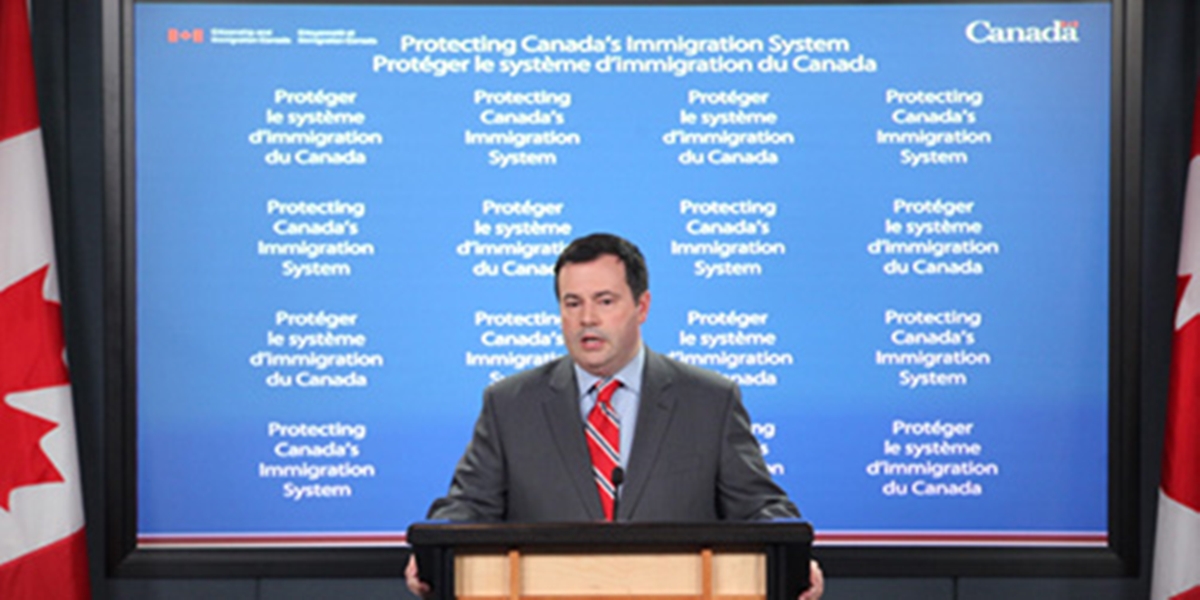2. Eligibility
The following may apply for permanent residence as a protected person:
- persons upon whom refugee protection has been conferred under paragraph 95(1)(b) or (c) of the Immigration and Refugee Protection Act
- members of the protected temporary residents class who have had their immigration medical examination
Who is eligible to apply?
Protected persons in Canada may apply for permanent residence in Canada and include in the application their dependants who are in Canada and abroad. Protected persons in Canada include
- Convention refugees
- persons in need of protection determined by the Immigration and Refugee Board (IRB)
- people with positive pre-removal risk assessments (PRRAs)
- protected temporary residents
Protected persons recognized by the IRB
Persons whom the Immigration and Refugee Board (IRB) has determined are Convention refugees or persons in need of protection may provide their Notice of Decision letter as proof of their status. If they lose this letter, they may contact the IRB for a replacement.
Positive PRRA decisions
Senior immigration officers making a positive pre-removal risk assessment (PRRA) decision produce a decision letter as well as a Verification of Status document. These documents are delivered to the client by the Canada Border Services Agency as per the usual process. Verification of Status documents are produced in the Global Case Management System.
Protected temporary residents
Individuals who were deemed a member of the protected temporary residents (PTR) class must provide their temporary resident permit as proof of their status.
Verification of Status document
A Verification of Status document is used for those who receive a positive pre-removal risk assessment. Any protected person can apply for a Verification of Status, which is proof of their status in Canada. A Notice of Decision from the Immigration and Refugee Board is also proof of protected person status. Either of these documents can be used to apply for permanent residence. The application for a Verification of Status document is online. There is no fee for this application if the individual is not yet a permanent resident or Canadian citizen.
Eligibility of family members
Note: Effective December 4, 2019, all protected persons in Canada may submit completed permanent residence applications for their overseas spouse or partner and dependent children along with their own completed permanent residence applications online or by mail to the case processing centre in Mississauga in order to facilitate concurrent processing for their family members.
Important: Although applicants are encouraged to submit applications for dependants abroad at the time they submit their own application, this is not a mandatory requirement in order for the protected person’s application for permanent residence to commence processing.
Once it is determined that a protected person is eligible to apply for permanent residence, their spouse or partner and dependent children in Canada and/or abroad who are included in the application are also eligible, provided that they meet the definition of “family member” in R1(3). For the most part, the IRB issues a notice of decision to all family members included in the family unit, should they have made a claim in Canada.
List all family members (including non-accompanying)
Protected persons, like all applicants for permanent residence, are required to list all family members, whether accompanying or not. R176(1) permits the protected person to include any family member, whether the family member is in Canada or abroad. Only those family members who are included as accompanying in the application will be examined.
Non-accompanying family members abroad who are included in the initial protected person’s application for permanent residence may apply to an officer outside Canada within one year after the day on which the principal applicant becomes a permanent resident if they so choose. This is possible under the One-year Time Limit (R176).
The approval in principle letter will inform the protected person that their family members for whom permanent residence is sought must meet statutory requirements in order to be granted permanent residence.
Family members within the meaning of R1(3) may be added to the application at any time prior to its finalization.
Changes to family composition
If applicants marry after the submission of the application and wish to include the spouse in the application for permanent residence, they may do so. If the marriage is not genuine or was entered into primarily for the purpose of acquiring any status or privilege under the Act, the application, with respect to the spouse, will be refused (R4).
Dependent children of the new spouse may also be included.





